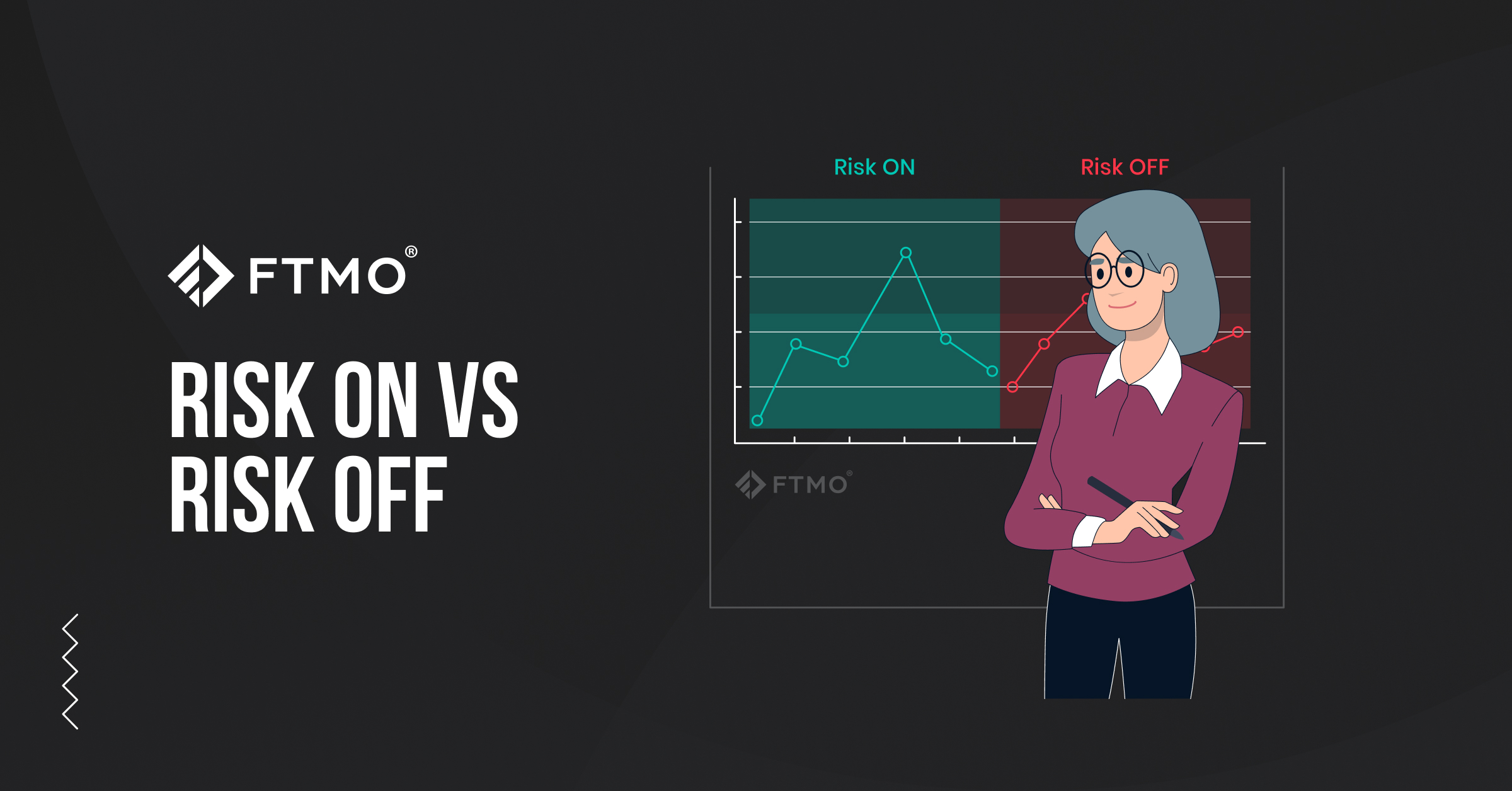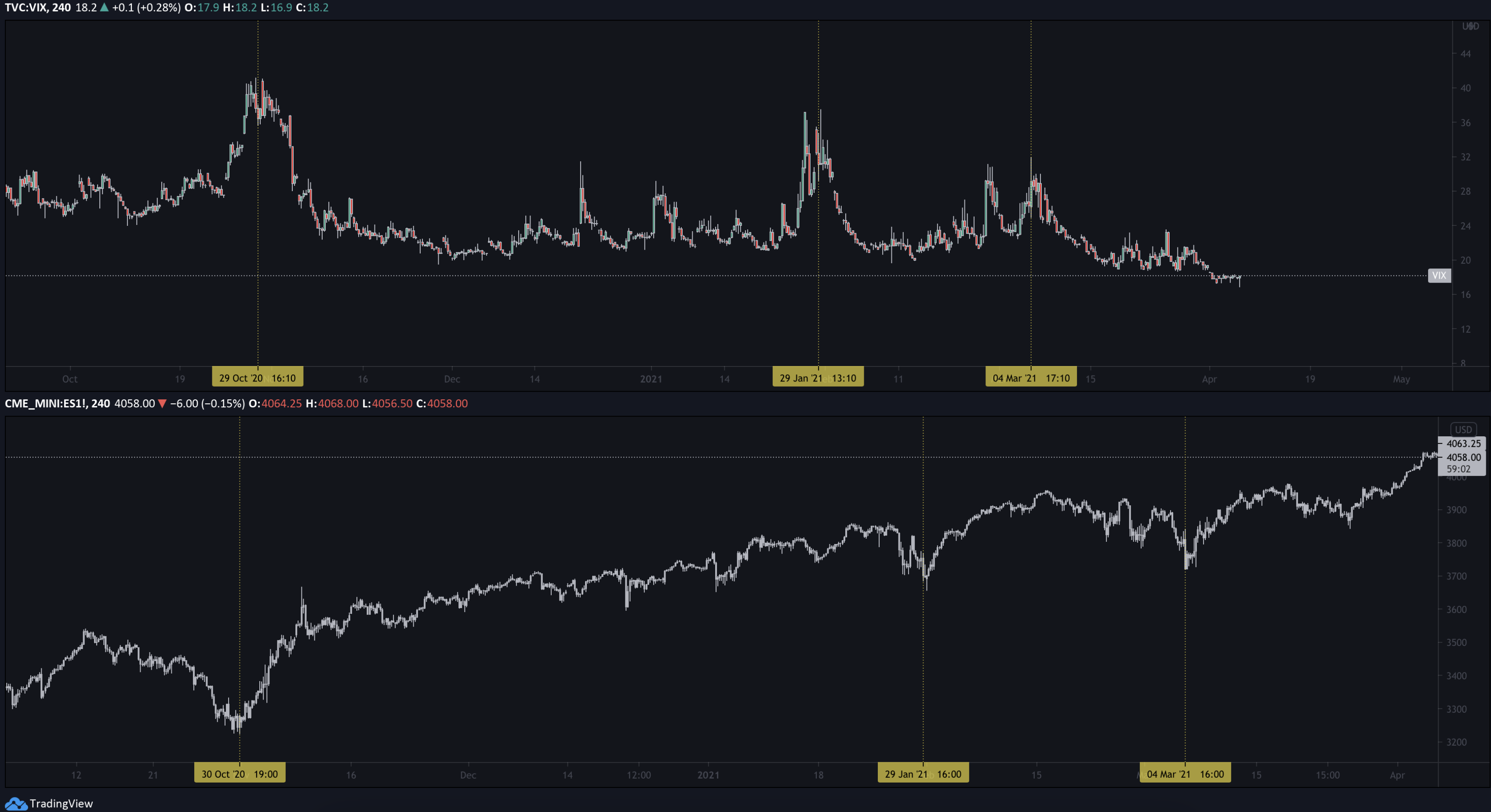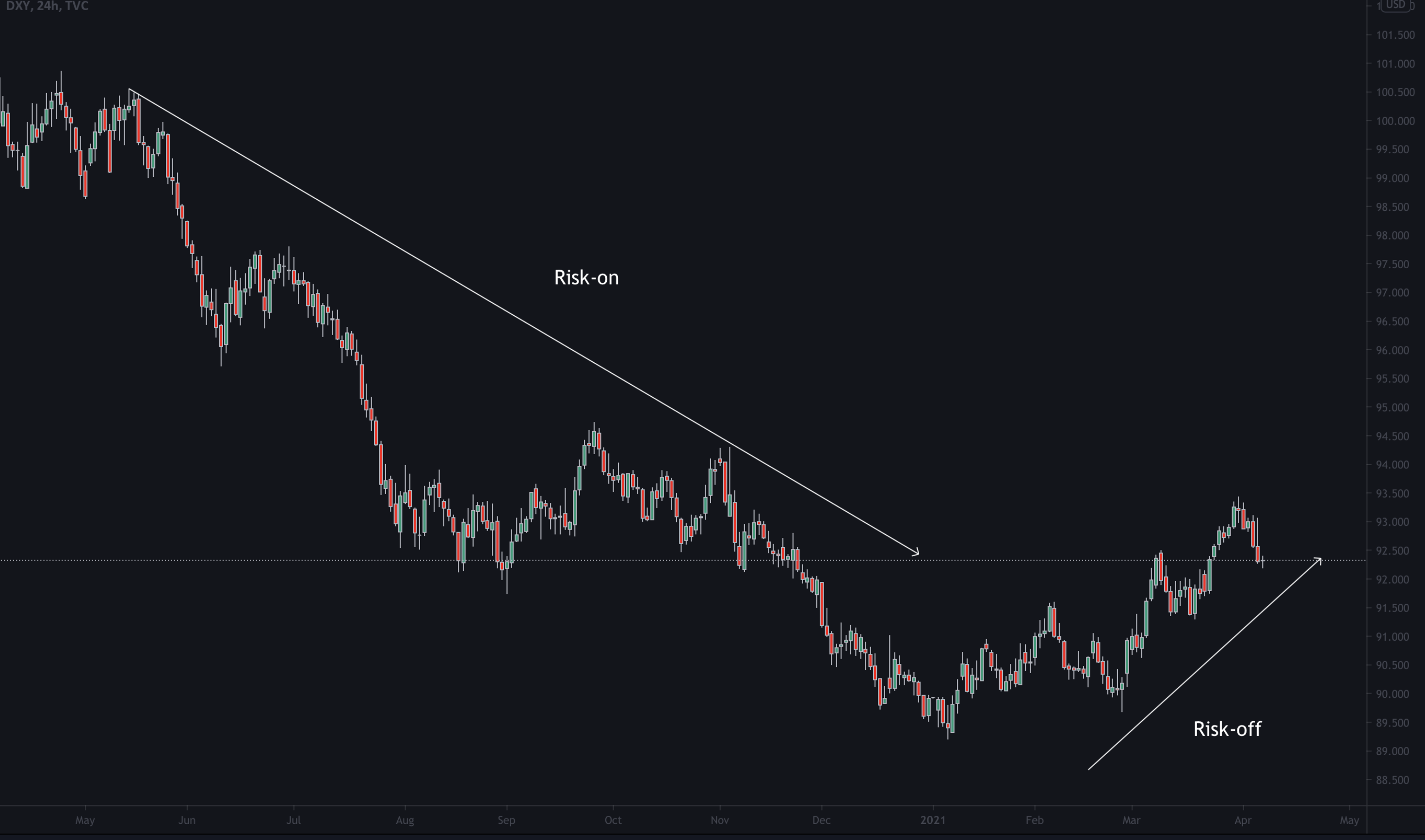Risk-on and risk-off are fundamental components of market sentiment that reflect on the mood and risk tolerance of market participants. What do they mean and how can you interpret them in your trading? We will explore that in this article.
Risk-on vs Risk-off
Risk-on and Risk-off are market sentiments where traders and investors are either taking or not taking a risk in the financial markets.
You will often hear in the news that we are in risk-on or risk-off market conditions.
Understanding what this means can help you in your trading and choosing the right instruments to trade.
Risk-on
When markets are in a risk-on environment, market participants feel optimistic about the economy so they tend to incline towards riskier assets.
These are stocks, high-yielding bonds or commodity currencies like AUD, NZD, CAD from majors or NOK, ZAR, TRY from exotics.
In commodities, risk-on instruments are Crude Oil or Copper.
Risk-off
When market participants are pessimistic about the economy or they expect some uncertainty with a negative impact on the market, they shift from risky assets towards so-called safe-havens.
Typical risk-off assets are U.S. Treasury bonds or German Bunds.
For forex traders, these are the JPY and CHF which often rally during the risk-off sentiment as traders are unwinding carry trades.
Carry trade means borrowing a safe-haven asset at a low-interest rate and then buying a high-yielding (riskier) asset in other markets.
Why are Japanese yen and Swiss franc considered safe-haven currencies?
Because they are from countries that own a large amount of foreign currency assets so they can sell those assets and bring to reduce risk.
U.S Dollar is also considered a safe-haven asset.
Especially during risk-off sentiment, traders exit their stock and other risky positions back to the U.S. Dollar.
In a commodity market, Gold is considered to be a safe-haven asset.
Here is the recap of instruments and directions you should be choosing during different environments.
Trading during a Risk-on sentiment
Long – Stocks, Commodity Currencies (AUD, NZD, CAD), Exotics, Crude Oil
Short – Bonds, U.S. Dollar, Yen, Swiss Franc
Trading during a Risk-off sentiment
Long – U.S. Bonds, German Bunds, U.S. Dollar, Yen, Swiss Franc, Gold
Short – Stocks, Commodities, Non-commodity Currencies
Predicting the Risk-on and Risk-off
Some of the great charts to predict risk appetite are VIX and Dollar Index.
VIX is tracking the performance of the S&P 500 which is the most popular equity index.
VIX has a negative correlation with the S&P 500, which means if VIX is up, S&P500 is down.
This means that when VIX is UP, we look for risk-off sentiment in the market and vice versa.
The US Dollar Index is another great sentiment indicator as it tracks the performance of all major currencies.
When the Dollar is going up, we are looking for risk-off sentiment, when the Dollar is going down, we are looking for the risk-on sentiment.
This is simply because all stocks and other risky instruments are cashed out back into the dollar.
All information provided on this channel is intended solely for the study purposes related to trading on financial markets and does not serve in any way as a specific investment recommendation, business recommendation, investment opportunity, analysis, or similar general recommendation regarding the trading of investment instruments. The content, in its entirety or parts, is the sole opinion of FTMO and is intended for educational purposes only. The historical results and/or track record does not imply that the same progress is replicable and does not guarantee profits or future profitable trading records or any promises whatsoever. Trading in financial markets is a high-risk activity and it is advised not to risk more than one can afford to lose!






